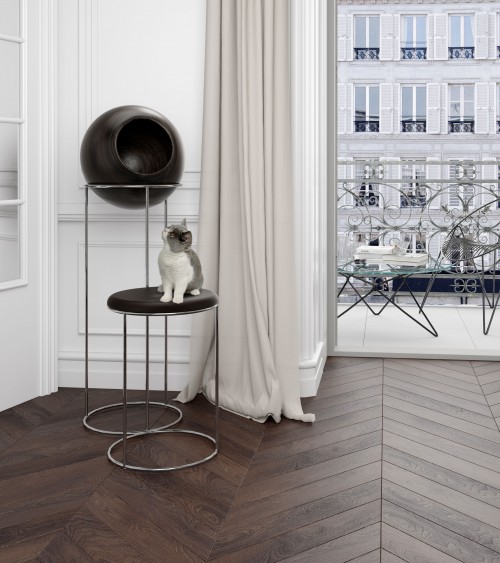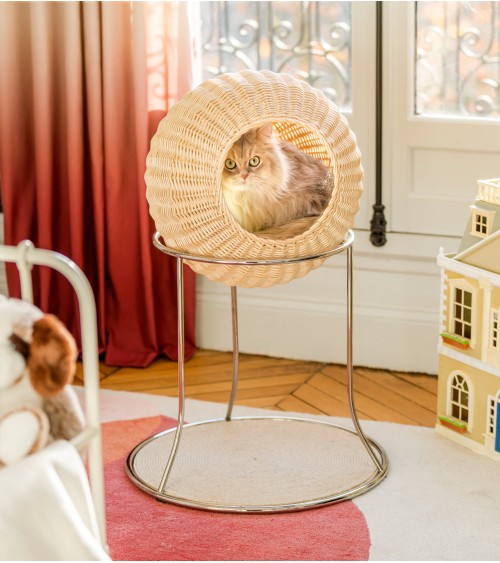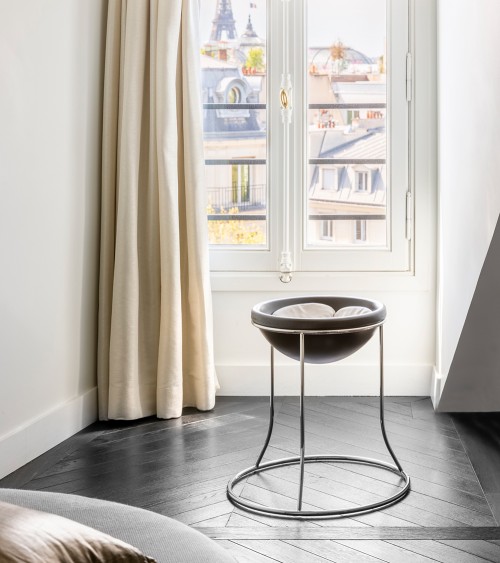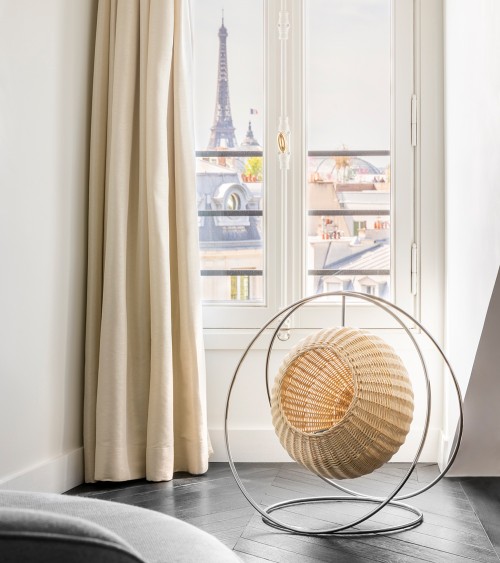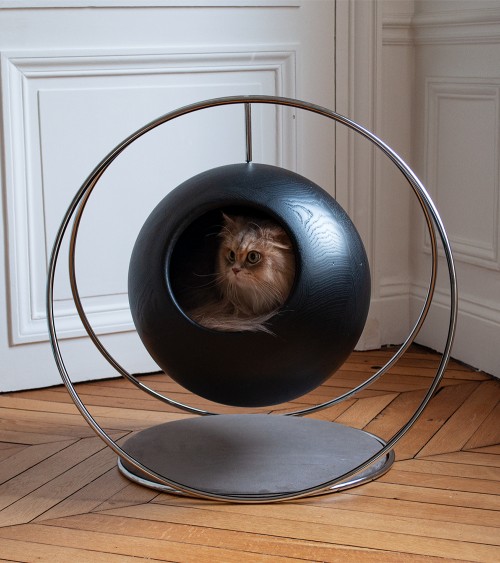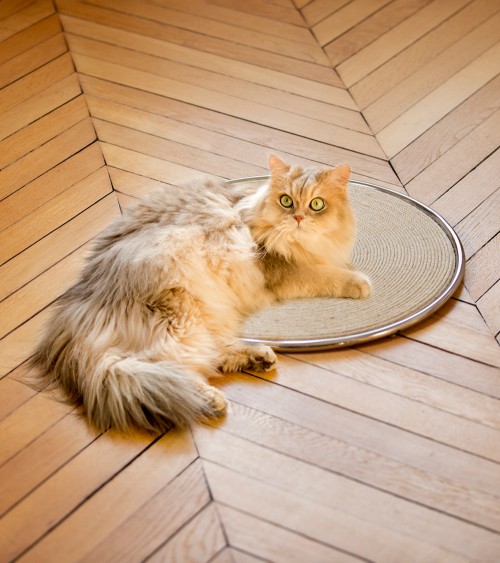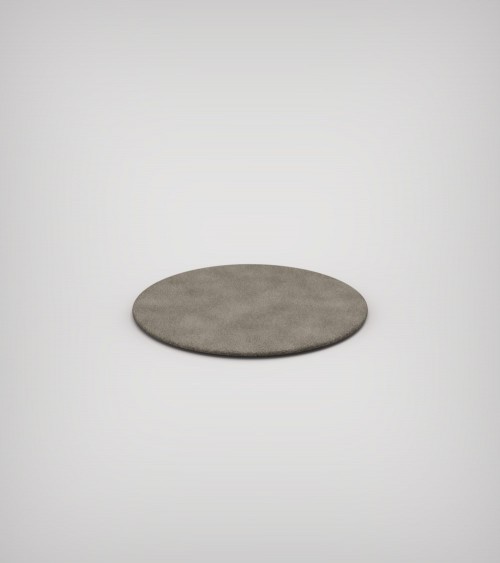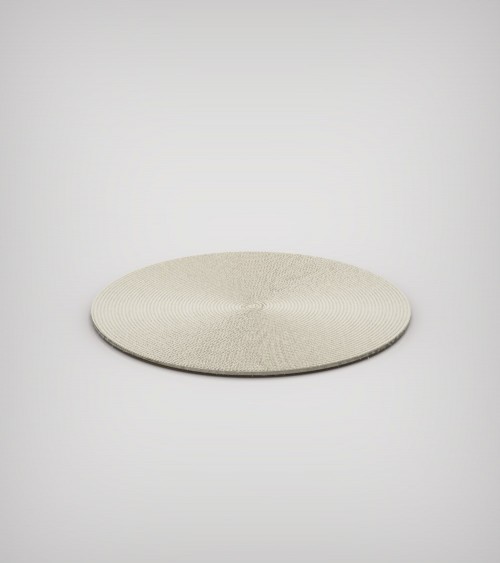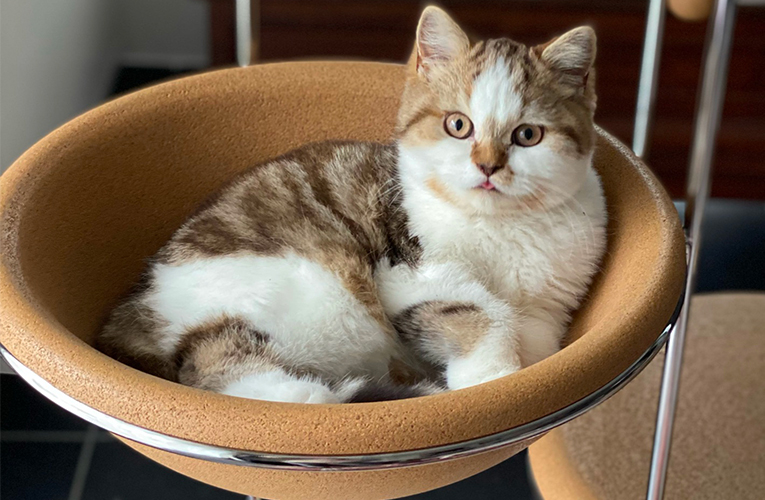How to recognise and reduce your cat's stress?
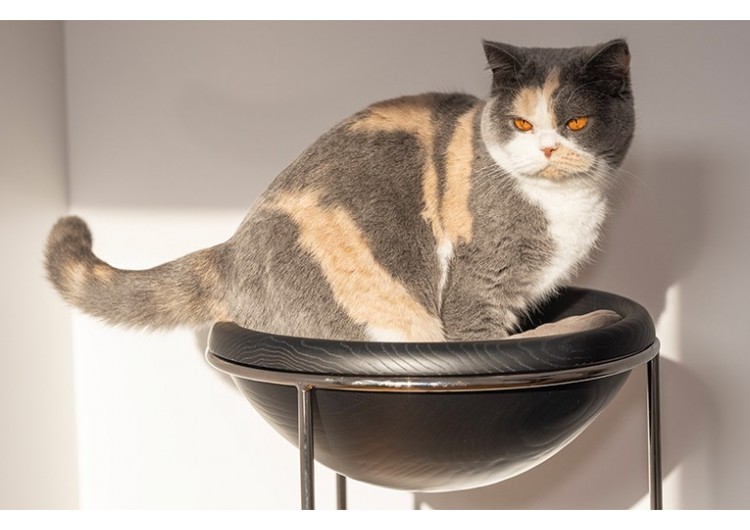
The cat is an animal that appreciates calm and stability. They are therefore sensitive to change and can easily suffer from stress and anxiety.
Stress, a danger to watch out for in cats
When stress becomes a daily and habitual occurrence, it can be dangerous for your pet. The bladder is the first organ affected by cat anxiety, so the first signs of too much stress will be unusual dirtiness.
Like a human, an anxious cat may want to shut down and isolate itself. On the other hand, they can also be alarmingly hyperactive or even aggressive. They may also suffer from bulimia or anorexia, by changing the way they eat.
The production of Cortisol, the hormone that maintains the balance of glucose in the blood, is higher when your cat is stressed and it is continuous, which weakens his immune system. This leaves your cat more vulnerable.
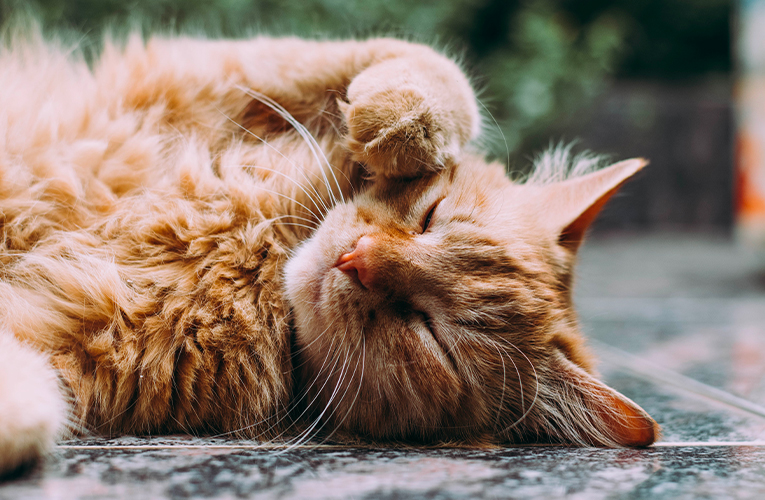
Stress symptoms in cats
It's important to recognise the symptoms of anxiety in your cat so that you can help him as quickly as possible. Stress causes many changes in your cat, so here are the main signs that your cat is anxious.
She's unusually aggressive
If your cat suddenly becomes more violent and aggressive, it may be a sign of severe stress that he can't control. His behaviour can change, for example, a shy and quiet cat may become overly energetic, while a sociable cat may want to isolate himself.
More frequent meowing
Your cat may show you his stress by meowing more frequently, but also louder and fearfully.
Compulsive licking
To ease the anxiety, your feline may lick himself more than usual, even compulsively. This can lead to significant hair loss.
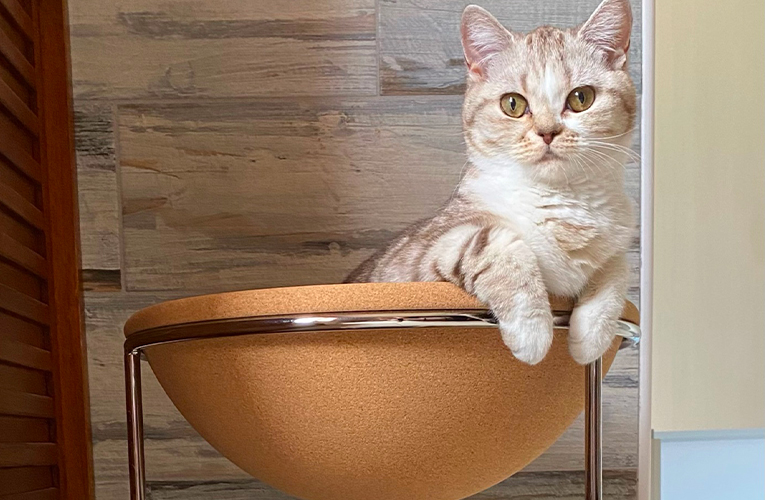
Unusual uncleanliness
As mentioned earlier, the bladder is the primary organ affected by cat anxiety. So your cat may be having more trouble being clean than usual.
Changes in diet
When stressed, your pet may change the way he eats and develop an eating disorder such as bulimia or anorexia.
Identify the source of your cat's stress
It's important to understand where your cat's anxiety is coming from so that you can help and soothe it as quickly as possible. This stress is often caused by a change in your cat's daily routine, as it upsets his routine and stability. We advise you to spend time with your cat and above all to take the time to identify what is causing this stress.
Here are the most common sources of anxiety in cats:
- Living with other cats
- The arrival of a new person in the family
- Change in diet
- Change in territory / moving
- Illness
Advice from Valerie Mounier, professional breeder, on how to calm your cat when he is anxious
As soon as you notice the first symptoms of anxiety, we advise you to go to your vet so that he can make sure that it is not due to a more serious illness and advise you.
Monitor your cat's diet
The first important point is to monitor your cat's diet, which can affect his mood. Your cat should be given several small portions of food a day. If this is not possible due to your lifestyle, you can leave his food on a free-choice basis.
Give your cat time
Give your cat more time if you see a change in his behaviour, as he will need reassurance. However, you should give your cat the space he needs but take time to play with him or cuddle him.
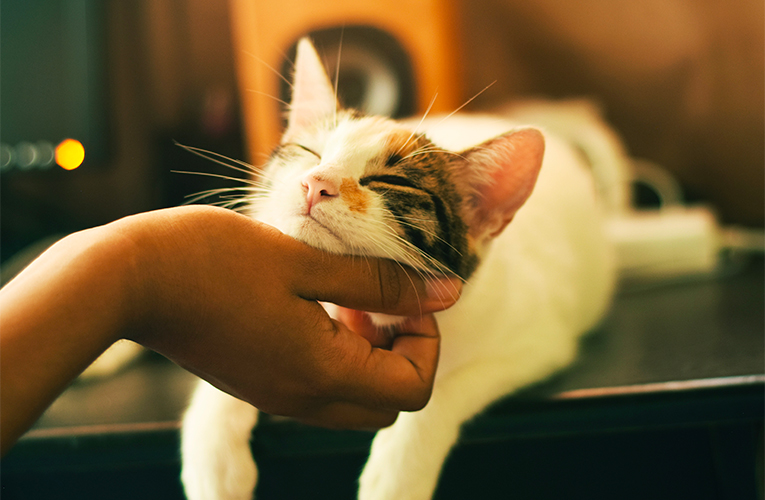
Create a comfortable and reassuring environment
The environment in which your cat lives has a big influence on his anxiety. So it's important to create a space for your cat to rest, be alone and play.
To promote your cat's well-being, provide him with the necessary facilities to meet his needs. Cats need places to hide, lounge and sleep. It's essential that your cat has a suitable surface to claw on. Finally, your feline needs to play to let off steam. The best way to stimulate his senses is to provide him with a cat tree with different areas: a niche for hiding and sleeping, different levels and a toy for him to climb and let off steam. Some cat trees have a scratching post so he can scratch on it.
To help you choose the right cat tree, we invite you to read our article: How do I choose my designer cat tree?
To make your cat feel comfortable and at ease in his new cat tree, we advise you to rub a soft cloth against its cheeks and then spread his scent on the object.
